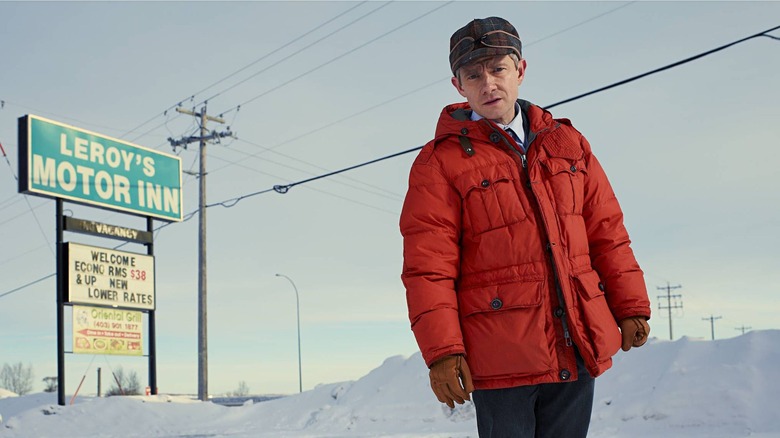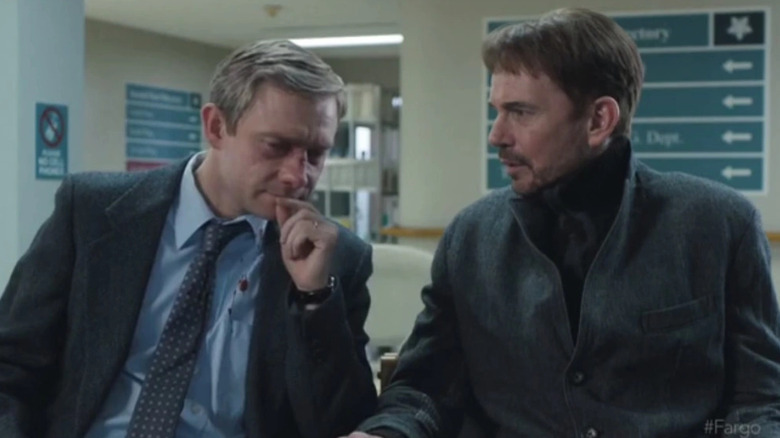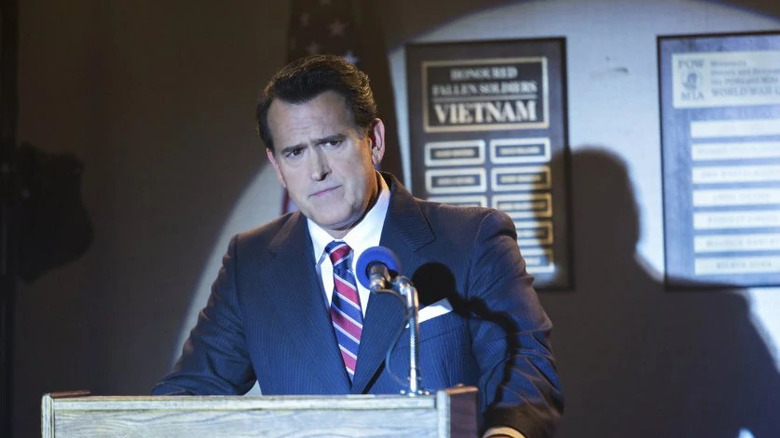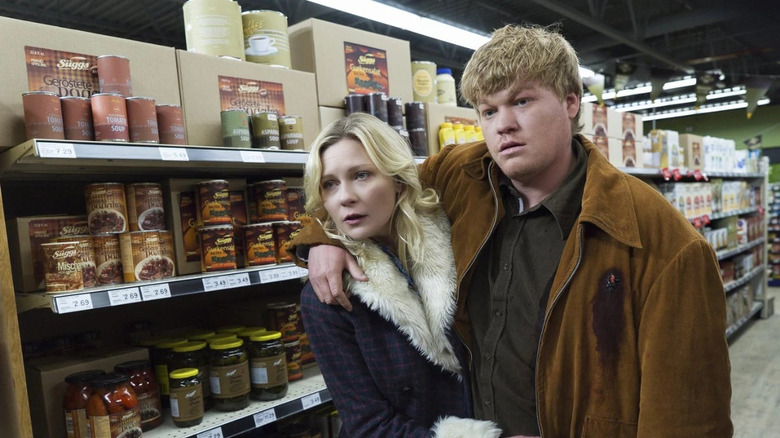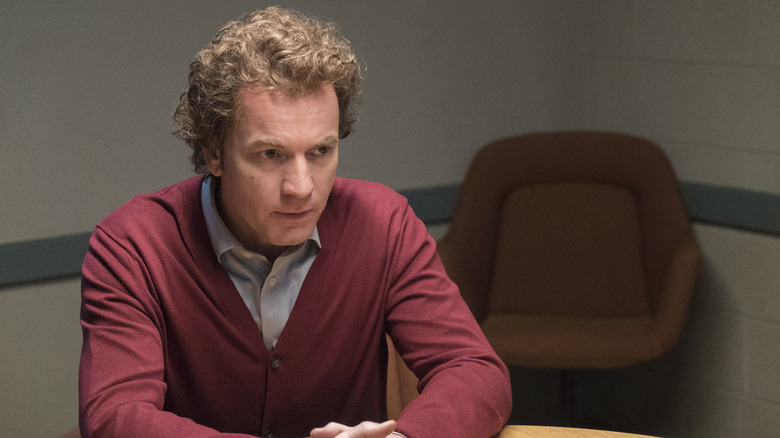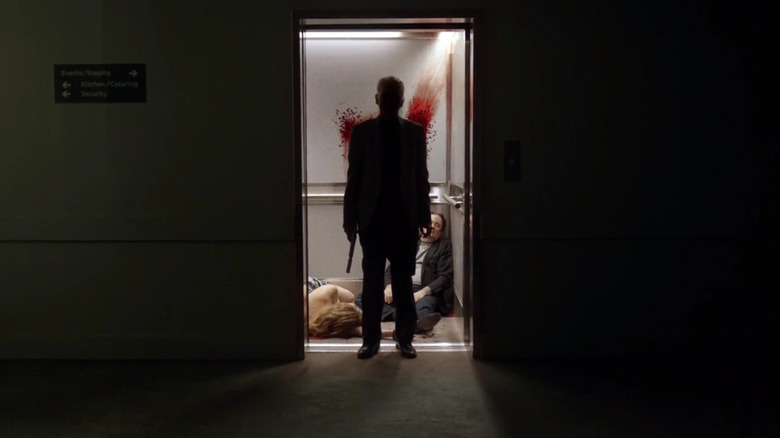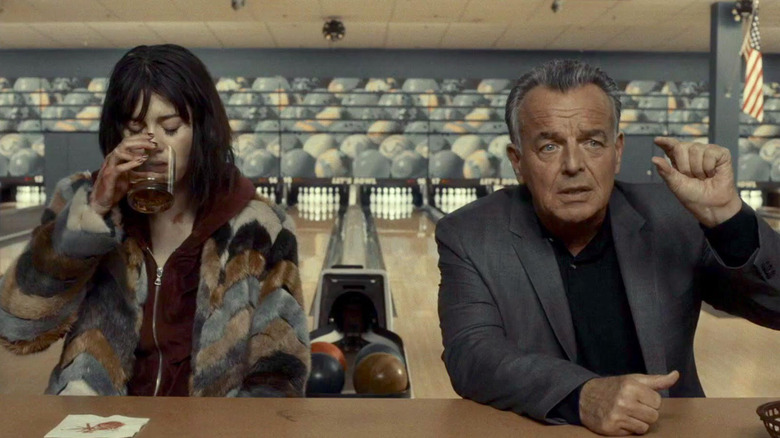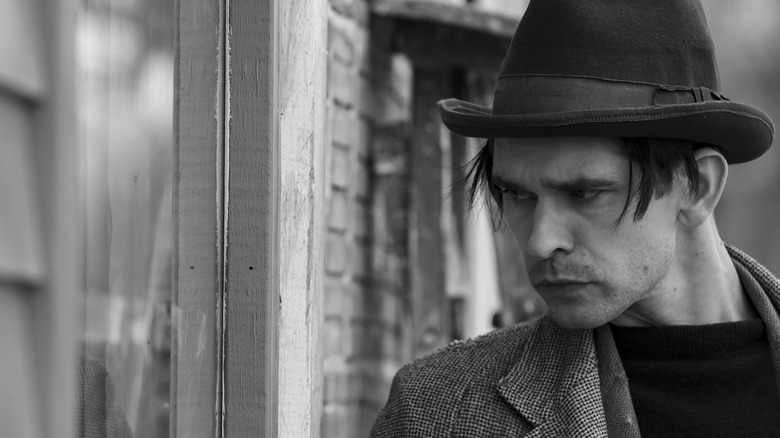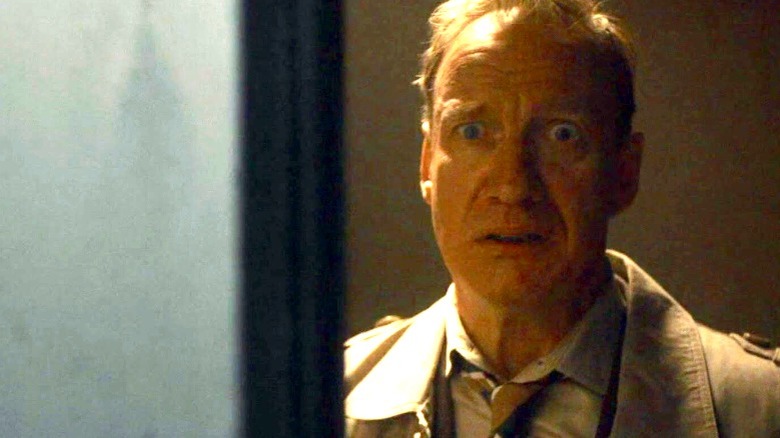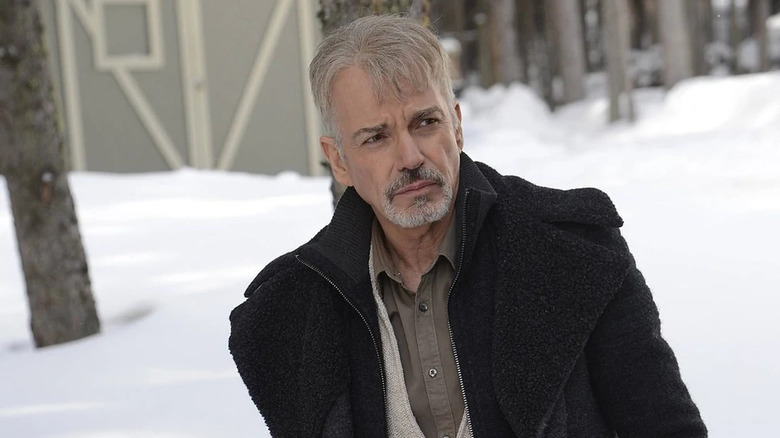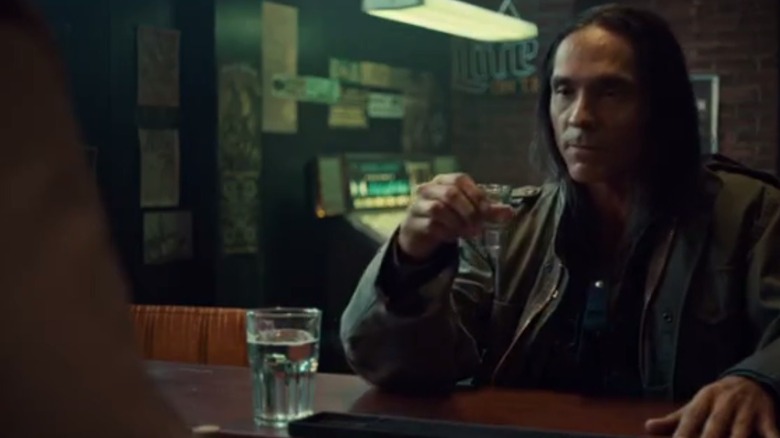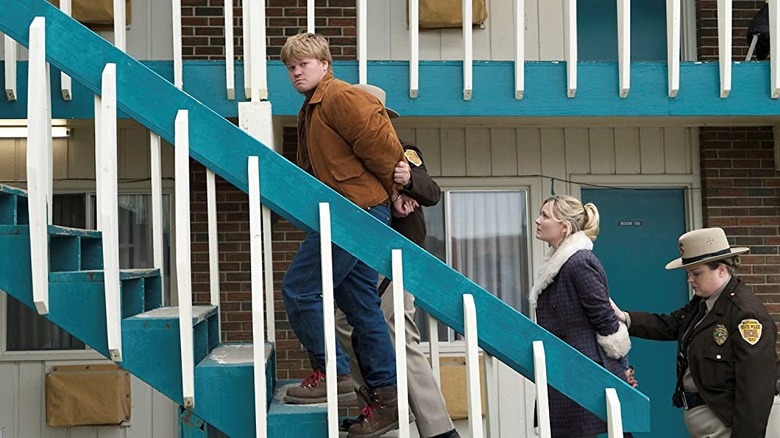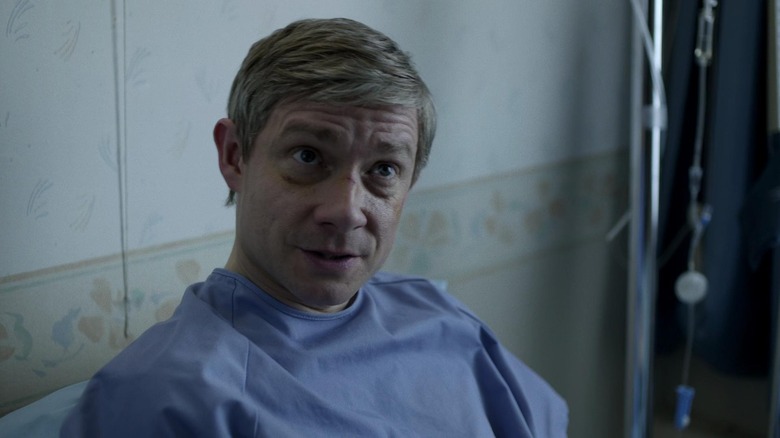The 12 Best Fargo Episodes, Ranked
In today's entertainment ecosystem, it seems like almost every film or television project in the works is connected to some previously produced work. Many new films and shows have capitalized on the popularity of established classics.
Joel and Ethan Coens' 1996 crime classic, "Fargo," is one of those films that is so perfect that it doesn't require a reboot. Its influence on modern crime movies can be felt today. It's the crowning achievement of the Coens brothers' career, and that's no small statement considering their incredible track record.
While fans were justified in their skepticism, Noah Hawley's FX series, "Fargo," lives up to the legacy of the original film. Instead of retelling the same events, FX's "Fargo" is presented as an anthology series that explores different crime stories that take place within the same continuity. The series retains the same dark sense of humor that made the original film so beloved.
"Fargo" fans are in luck. The series has been renewed for Season 5, with Jon Hamm, Jennifer Jason Leigh, Juno Temple, Lamorne Morris, Richa Moorjani, and Joe Keery expected to join the cast. Here are the 12 best "Fargo" episodes, ranked.
12. The Crocodile's Dilemma (Season 1, Episode 1)
Any concerns that FX's "Fargo" would fail to live up to the precedent that the Coen brothers established were easy to dismiss after the very first episode of the series. With his outstanding pilot, showrunner Noah Hawley captured a similarly demented crime story. However, he didn't attempt to replicate the characters Marge Gunderson (Frances McDormand) and Jerry Lundegaard (William H. Macy) from the original film. Instead, Hawley drew a thematic parallel. The petulant insurance salesman Lester Nygaard (Martin Freeman) finds himself in a similar moral crisis as the one that Jerry deals with.
Lester has allowed everyone in his life to belittle and take advantage of him. While Jerry is presented as a greedy character from the very beginning, Lester is initially somewhat sympathetic. It's only over the course of the season that he reveals his true nature. A show like "Breaking Bad" was heralded for turning Walter White (Bryan Cranston) from a sympathetic victim into a detestable hero over the course of the series, but "Fargo" did the same thing with Lester in just one season.
After he accidentally kills his wife, Pearl (Kelly Holden Bashar), Lester is forced to ask for the help of the enigmatic drifter Lorne Malvo (Billy Bob Thornton). Malvo is shrouded in secrecy, but based on the information that we learn in "The Crocodile's Dilemma," he has experience dealing with similarly conspicuous murder cases.
11. The Gift of the Magi (Season 2, Episode 5)
Season 2 took a slightly different approach in the way that it constructed its ensemble cast. In Season 1, the supporting players are called into the adventure after the inciting incident. In Season 2, we see how one accidental crime affects three distinct groups of characters: the Mafia, the police, and the working class citizens. It allows "Fargo" to explore the social tensions and economic disenfranchisement that existed in the upper Midwest region of the United States in the late 1970s. Despite its dark sense of humor, "Fargo" does a great job of showing empathy for all of these characters.
"The Gift of the Magi" falls in the center of Season 2 and takes a slight detour from the main storyline to insert some political commentary. Lou Solverson (Patrick Wilson) is temporarily taken off of his murder investigation so that he can join the security team that is working for Ronald Reagan (Bruce Campbell) during his presidential campaign. Campbell delivers a fun performance that doesn't descend into caricature. It's evident how an ignorant politician like Reagan could inadvertently affect this small community.
"The Gift of the Magi" also does a great job of exploring the relationship between Ed (Jesse Plemons) and Peggy Blumquist (Kirsten Dunst). Peggy sets aside her personal goals to sell her car to pay for Ed's butcher shop.
10. Palindrome (Season 2, Episode 10)
Despite being heralded as two of the very best filmmakers of their generation, the Coen brothers have frequently been accused of "hating" their characters and showing a lack of empathy. These criticisms have recurred throughout their careers, and FX's "Fargo" would have to address them in one way or another. In Season 1, "Fargo" could be accused of having the same bleak perspective on the world. However, there is a slight sense of optimism that emerges in Season 2. The final episode, "Palindrome," does a great job of giving the characters a touching sendoff.
Not every character gets a happy ending. Ed and Peggy are ultimately forced to face the consequences of their crimes. They go on the run from their pursuers but don't last very long. Ed is killed in a firefight with Hanzee Dent (Zahn McClarnon), and Peggy is arrested by Lou. Peggy's speech to Lou about how her life is worthless is heartbreaking.
However, things end on a slightly lighter note thanks to a touching connection to Season 1. Lou is the father of Season 1's Molly Solverson (Alison Tolman). As he ponders the existence of UFOs, Lou has a vision of spending a peaceful time with his daughter and her lover, Gus Grimly (Colin Hanks). This could have felt like a forced connection between two different stories, but waiting until the final episode of the season was a good way to bridge the gap.
9. Aporia (Season 3, Episode 9)
Season 3 of "Fargo" is easily the most underrated of the series. While the first two seasons focus on a group of relatively likable protagonists, nearly all of the characters in Season 3 are seriously flawed. It's a very dark season, but Noah Hawley was unafraid to take a risk with the grim tone. Season 3's greatest flaw is taking too long to get going. However, the action begins to ramp up towards the end, particularly during the penultimate episode, "Aporia."
"Fargo" often rewards its most despicable characters, but in "Aporia," we finally get to see some justice delivered. At the end of the previous episode, Emmit (Ewan McGregor) makes his way to the police station. He plans to confess his crimes to Detective Gloria Burgle (Carrie Coon). Gloria's efforts go unnoticed by her supervisors for a majority of the season, so it is nice to see her finally get to nail Emmit for his crimes.
However, Emmit doesn't stay imprisoned for very long. Nikki (Mary Elisabeth Winstead) has blackmailed the villainous V. M. Varga (David Thewlis) into setting Emmit free. This was an interesting way to subvert what we had learned about both characters. Nikki has grown in confidence after her adventures in the previous episode, "Who Rules The Land of Denial?" Varga is one of the most powerful characters in the series, and it's interesting to see him lose control.
8. A Fox, a Rabbit and a Cabbage (Season 1, Episode 9)
Following the climactic events in the previous episode, "The Heap," Season 1 takes a time jump forward one year for the penultimate episode, "A Fox, a Rabbit, and a Cabbage." In the time that has passed, the characters have inherited new roles. Molly is now happily married to Gus, who is content with his new job as a mailman. Although Molly's inherent goodness makes her perfect for the police force, Gus ultimately doesn't have the heart to deal with the darker side of human nature.
Although these two are content, Molly holds on to her theory about Lester. Lester has somehow managed to elude justice in Las Vegas. Coincidentally, he ends up running into Malvo, who is disguised as a dentist named Mick Michaelson. Lester has become overconfident. He demands that Malvo speaks to him. Malvo pretends not to recognize him. After Lester refuses to leave the situation alone, Malvo shockingly kills his fiancee, Jemma Stalone (Helena Mattsson) as well as his co-worker, Dr. Burt Canton (Stephen Root), and his wife, Louise (Jennifer Copping).
Malvo reveals to Lester that he was working on a new con — that is now ruined. Realizing that he is in danger, Lester is forced to go on the run again to avoid Malvo's wrath. The intense final scene in which Lester hides from Malvo in a parking lot sets up an exciting season finale.
7. Who Rules the Land of Denial? (Season 3, Episode 8)
"Fargo" is one of the most brilliant television shows of its era. While the series does an excellent job of weaving a complex narrative, it takes many bold artistic risks with the way that the episodes are constructed. The visual sensibilities and peculiar stylistic choices make "Fargo" feel just as cinematic as anything in the Coen brothers' filmography. Of all the show's directors, Mike Barber is among the best.
Barber delivers a haunting, intense spectacle with the Season 3 episode "Who Rules the Land of Denial?" Nikki escapes from a prison bus with the deaf assassin Mr. Wrench (Russell Harvard), a fan favorite character from Season 1. Chained together, Nikki and Wrench are forced to work together to escape henchmen Yuri Gurka (Goran Bogdan), Meemo (Andy Yu), and Golem (DJ Qualls). After a violent brawl, Nikki and Wrench flee to a nearby bowling alley.
The artistic, idiosyncratic nature of "Fargo" makes it very similar to David Lynch's classic crime series, "Twin Peaks." The innovations of "Twin Peaks" in the 1990s set the precedent for the auteur approach to current television shows. In what is perhaps an homage to the show's connections, "Twin Peaks" co-star Ray Wise has a brief appearance in "Who Rules the Land of Denial?" as a mysterious man that Nikki meets in the bowling alley. They share a Lynchian conversation about evil.
6. East/West (Season 4, Episode 9)
While Season 3 of "Fargo" should be praised for its bold change of pace, Season 4 was unfortunately a disappointment. The grim tone of Season 3 seems earned. The show earned the right to show a darker side of the universe. However, Season 4 suffers from being too ambitious. It feels odd for the show to continue using its quirky sense of humor while telling a story about race relations in the 1950s. Perhaps a white showrunner like Noah Hawley was not the right person to be telling this story.
Season 4 explores the complex relationship between two crime families that have formed a hasty truce. Loy Cannon (Chris Rock) is the head of the black mafia group known as the Cannon Syndicate. They attempt to fight for economic independence. Donatello Fadda (Tommaso Ragno) leads a Kansas City crime syndicate. Although the two clans are destined to be enemies, they arrange an agreement to exchange their youngest sons to avoid bloodshed.
While the season is ultimately a slog, it peaks in the episode "East/West." "East/West" stands out because it is presented in black and white. The episode focuses on Loy's son, Satchell (Rodney L. Jones III), and his Irish-American protector, Rabbi Milligan (Ben Whishaw). Considering these are the most likable characters in the season, it's nice to see their perspectives highlighted.
5. Somebody to Love (Season 3, Episode 10)
The final episode of Season 3 mostly focuses on Gloria's attempts to put all the pieces together. This was a strong way to close out the story. Gloria is essentially the audience's avatar, as she is the only character in the season that seems to have any sense of good judgment. Gloria realizes that Nikki is searching for Emmit and races off to save him. Despite all that she has learned about Emmit, Gloria is still willing to protect him because of her inherent goodness.
Emmit's fate seems sealed when his car breaks down in the middle of the road and Nikki tracks him down with a loaded gun. After her behavior draws the attention of a local police officer, a firefight ensues. Emmit escapes after both the cop and Nikki are killed. In an attempt to atone for his actions, Emmit apologizes to his wife, Stella (Linda Cash). It's refreshing to see Emmit admit to what he has done. Despite receiving only two years probation for his crimes, Emmit is murdered five years later by Wrench. This was a fascinating way for the show to contemplate how no one eludes justice.
The episode ends with one of the series' most haunting moments. Gloria manages to arrest Varga and claims that he will go to prison for the rest of his life. Despite her confidence, Varga seems content.
4. Morton's Fork (Season 1, Episode 10)
Everything comes full circle in the Season 1 finale, "Morton's Fork." It's among the most satisfying episodes. The virtuous characters are rewarded for their chivalry, and the villains pay the price for their crimes. It's an intriguing way to change the ending of the Coens' film. In the original, Marge is left to reflect on how meaningless all the greed, killing, and crimes in the world are. While the series doesn't shy away from these topics, there's a greater sense of optimism.
Lester is still on the run from Malvo. He only narrowly escapes after an intense firefight. Lester's luck runs out. His involvement in Pearl's murder has been revealed, and he is now a fugitive. Lester perishes after attempting to run from the authorities on thin ice. Malvo doesn't make it out either. He is confronted by Gus, who discovers Lester's confession. Although Gus has been struggling with his feelings of guilt about accidentally shooting Molly, he's finally rewarded for his diligence.
The episode ends with a nice moment of familial bonding. Molly tells Gus that she is proud of him. They have mutual respect, and Gus' bravery doesn't discredit Molly in any way.
3. Loplop (Season 2, Episode 8)
"Loplop" shows the combination of tension and humor that makes "Fargo" so unique. At the end of the previous episode, "Did You Do This? No, You Did It!," Ed reveals to his wife that he has captured the criminal Dodd Gerhardt (Jeffrey Donovan). The couple contemplates what to do with their new hostage when they take him back to a hunting cabin owned by a relative in South Dakota. Ed and Peggy aren't criminals. They have no idea how to hold someone captive or interrogate them. There is an awkward tension in the exchange that leads to some humorous moments.
Things get even more electrifying when Hanzee closes in on the couple. Hanzee is among the most interesting characters in the season. Although he works as an enforcer for the Gerhardt family, he isn't treated as an equal because of his Native American heritage. Hanzee is clearly traumatized by his experiences in the Vietnam War. After Hanzee tricks Peggy's coworker into revealing her location, he comes to find Dodd. In a strangely touching moment, Hanzee asks Peggy to give him a haircut after he kills Dodd.
However, Peggy makes a rash decision to attack Hanzee so that she and Ed can escape. Although Peggy appears to have some sympathy for Hanzee, she doesn't entirely trust him. This sets up an exciting chase in the next episode once Lou and Sheriff Hank Larsson (Ted Danson) arrive at the scene of the crime.
2. The Castle (Season 2, Episode 9)
"Fargo" has a habit of saving the most exciting moments of each season for the penultimate episodes, allowing the season finales to be more contemplative. Season 2 reaches its climax in the thrilling episode "The Castle." After the cliffhanger at the end of "Loplop," Ed and Peggy are taken into custody by Lou and Hank. It's a rare case in which the viewer can empathize with all of the characters. Ed and Peggy aren't inherently violent people. However, it's satisfying to see Lou and Hank learning the truth.
However, there is tragedy in store when Lou stops by a gas station and realizes that Hanzee has killed the clerk. Desperate to stop Hanzee's rampage, Lou rushes to let Hank and the other cops know that they should be on high alert. Unfortunately, he's too late, as Hanzee has already launched his attack. It's not the only heartbreak that Lou has to deal with in the episode. He doesn't realize until later that his wife, Betsy, has collapsed from a serious illness. Wilson delivers his most heart-wrenching performance yet.
The episode features an odd moment in which a UFO appears in the sky. Although this may have rubbed some viewers the wrong way, it's perfect for the strange tone that the series creates.
1. Buridan's Ass (Season 1, Episode 6)
Season 1 goes from methodical to electrifying in the action-packed episode "Buridan's Ass." This episode singlehandedly raises the emotional stakes of the show, highlights a few of the key relationships, and features some standout performances. The philosophical term "Buridan's Ass" refers to a theoretical paradox in which the participants have no free will. This is perfect for the strange and tragic circumstances in the episode.
"Buridan's Ass" shows Malvo at his most dangerous. After escaping the police's detection, Malvo squares off with the hitmen Mr. Wrench and Mr. Numbers (Adam Golberg). During the chaos, Gus and Molly show up. While Gus tries to show his bravery, he accidentally shoots Molly during the firefight. The devastated look on Hanks' face is heartbreaking. It's a critical moment in the way that it complicates their romance.
Lester is able to temporarily escape from justice. This is the episode in which he truly becomes a villain. The overconfident smirk on Freeman's face during the very end suggests that his luck is not destined to last.
